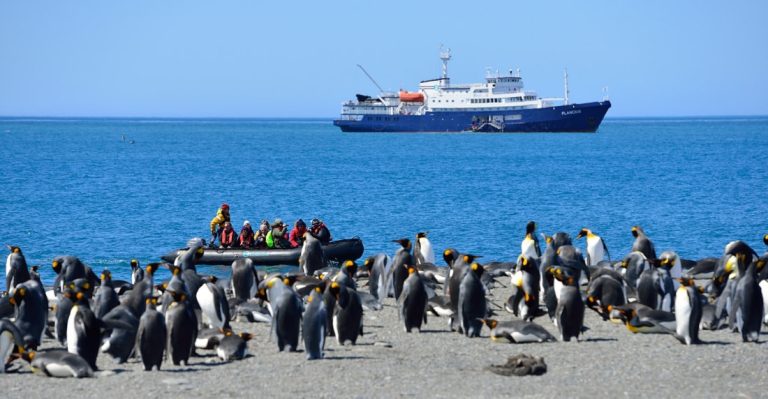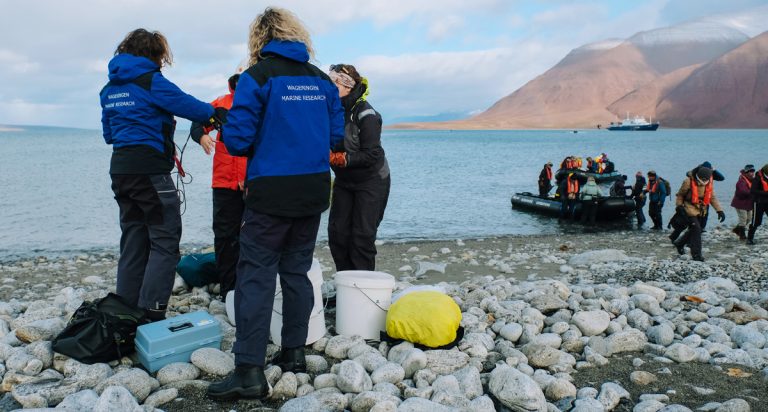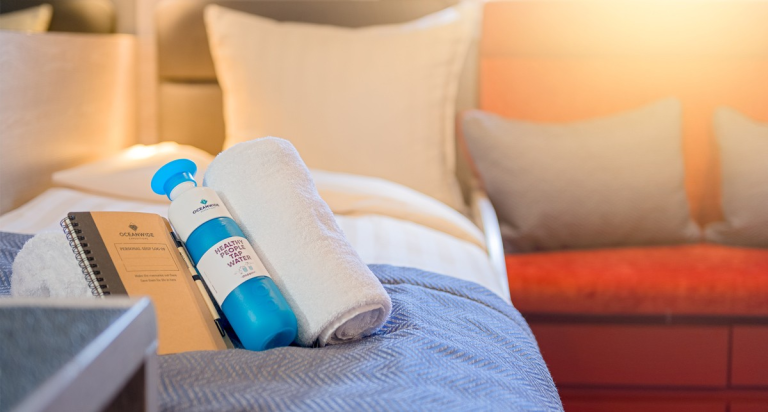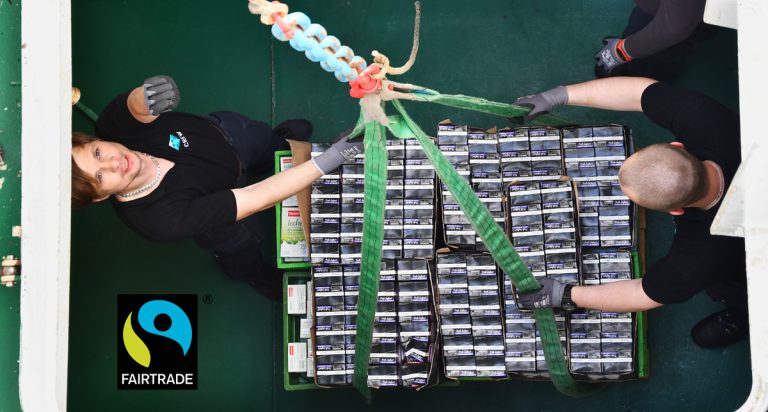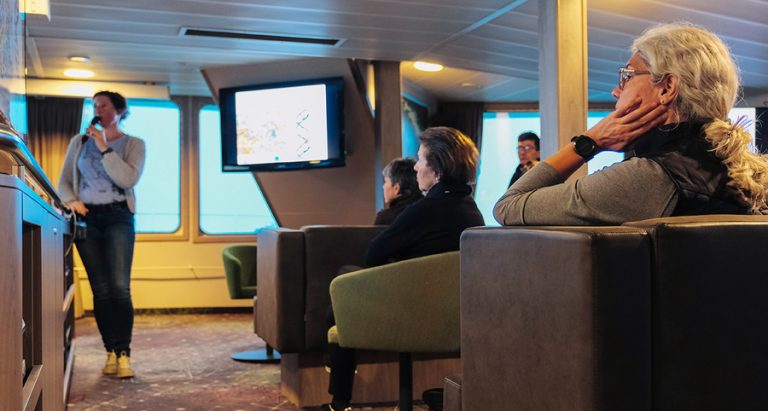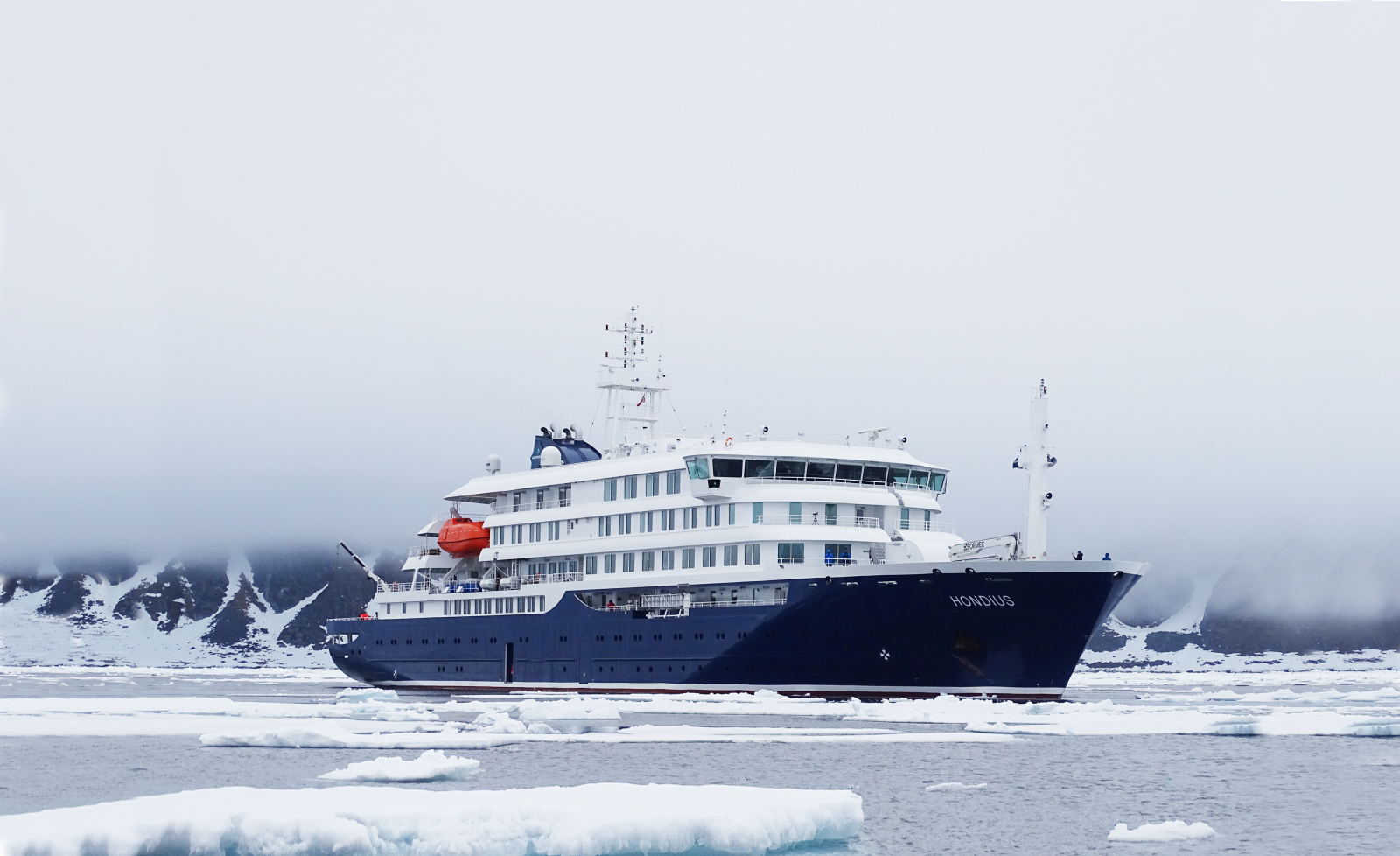Oceanwide and Polar Environment Conservation
Oceanwide Expeditions is a well-known expedition company for its polar voyages and the invention of the Antarctic basecamps. It is one of the first companies to take travelers to the remote Arctic island of Spitsbergen, but most importantly, it stands out for its respect towards the precious polar environment.
Oceanwide offers cruises into the heart of this otherworldly environment, with its fleet of ice-strengthened ships, fully aware that they are merely guests in the polar regions, and for this reason, they do everything possible to leave these incredible areas as untouched as possible.
OCEANWIDE
The top sustainability goal is the active reduction of ship impact and emissions. This is achieved through investment in new technologies and continuous improvement of existing resources. The m/v Hondius was designed from the ground up to use only the latest ecological technologies such as LED lighting, steam heating, biodegradable paints and lubricants, variable pitch propellers, shaft generators instead of diesel generators, Tier III engines that reduce nitrogen oxide, waste heat that can be reused for freshwater production, and flexible energy management systems that keep fuel consumption and CO2 emissions low. In particular, these new, efficient engines have reduced the average fuel consumption per passenger by over 35%, making Hondius one of the most environmentally sustainable ships in the polar regions. But this applies not only to new constructions. Oceanwide also refurbishes and updates older ships, as seen in the case of Ortelius, where two new low-emission engines, compliant with all the latest environmental regulations, were installed. Lastly, another of the most important sustainability commitments is the use of low-sulfur marine gas oil (LSMGO), which contains less than 0.1% sulfur.
Another sustainability goal is waste reduction and removal, as most Arctic waste washes ashore and pollutes the animals’ feeding areas. All vessels in the fleet are equipped with water treatment and desalination systems using reverse osmosis, allowing us to eliminate the use of plastic bottled water on board. Guests are provided with a reusable water bottle they can refill on the ship. No plastic straws, cups, or individually packaged butter, yogurt, or jam are used on board. Additionally, bathrooms are equipped with biodegradable shampoo and soap in recycled packaging, further limiting the use of plastic.
Waste Removal_Oceanwide
Waste-Reduction
In addition to reducing ship-generated waste, the company is committed to disposing of waste that accumulates in operational areas by participating in Clean Up Svalbard, a waste removal initiative organized by the governor of the archipelago. For instance, in 2018, Oceanwide and other AECO members conducted 128 beach clean-ups, removing over 40 tons of waste. These cleaning groups mostly consist of expedition cruise guests who volunteer to help the environment they have grown to love.
Oceanwide is also committed to supporting local communities by purchasing products locally whenever possible, thereby reducing transportation impacts and supporting local businesses. Over the years, this has created strong relationships with reliable and sustainable suppliers. Of course, wildlife protection is another key sustainability goal. When accessing the natural habitat of incredible exotic animals, AECO and IAATO wildlife guidelines are diligently and passionately applied to avoid any disturbances.
Oceanwide Sustainability
Conferences
Finally, Oceanwide is committed to assisting scientists and scientific research in the polar regions, as it is both a central part of Oceanwide’s culture and history and a vital activity for advancing our understanding of the polar environment. The company works on several projects, such as documenting and analyzing Arctic waste, helping scientists like Wouter Jan Strietman monitor plastic and microplastics through his Arctic Litter Project with Wageningen University & Research; offering passengers the opportunity to participate in citizen science projects that directly contribute to current Arctic and Antarctic research; facilitating the work of scientists like Martine Van den Heuvel-Greve, who studies non-native invasive species in the Arctic, conducting research aboard Plancius; providing scientific equipment like ARGO floats, which measure water temperature, salinity, and pressure to discover how climate change affects the oceans; hosting researchers studying ice cores, weather fluctuations, and CO2 concentrations to advance knowledge of climate change, its effects, and how to reduce its devastating impact.
Thus, Oceanwide is committed to offering a 360-degree positive polar experience by engaging guests in a combination of immersive outdoor activities, maximum contact with local wildlife, and supplementary presentations on board, all while preserving the polar environment and its rich wildlife. This allows guests to become aware and involved as they are fortunate enough to access these precious areas of the Earth.
Stay updated with news, reviews, and offers from Oceanwide Expeditions on Cruising Journal with photos, videos, and cruise deals.

